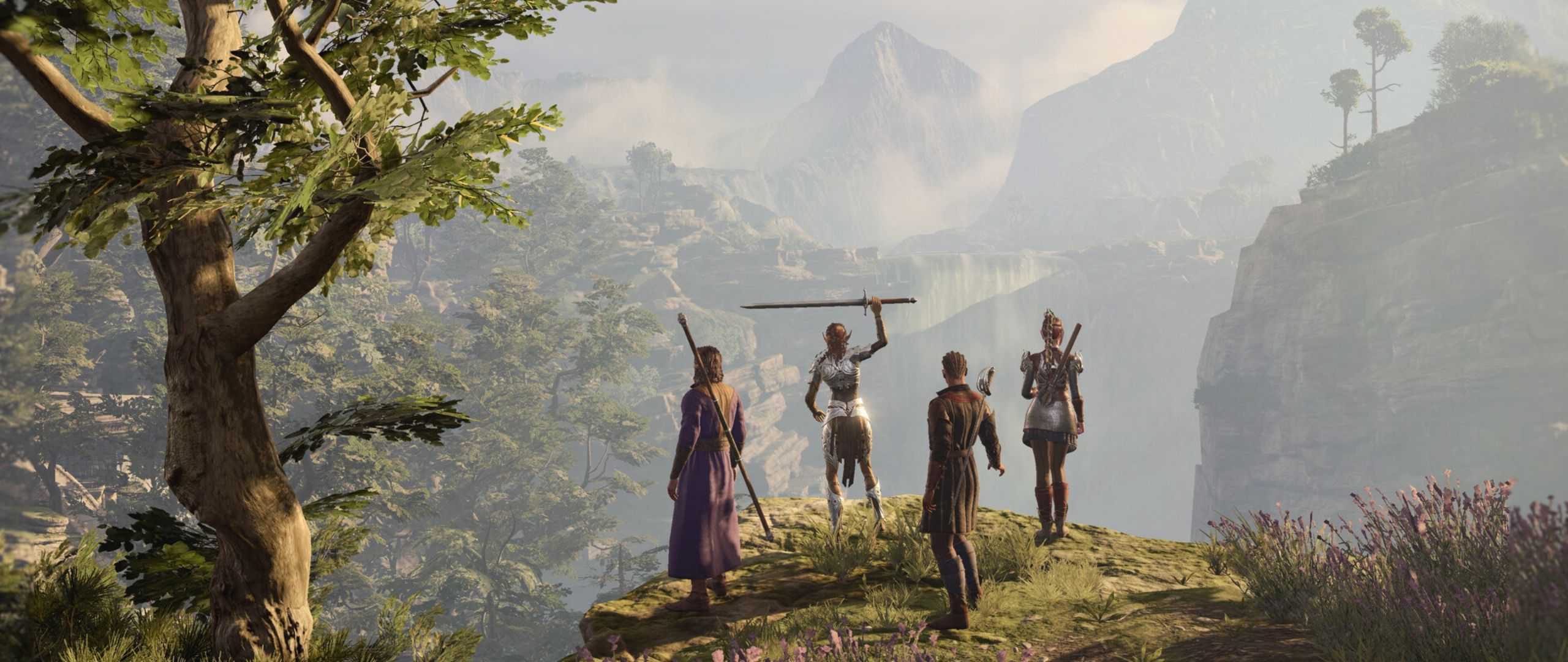TechRadar Verdict
Baldur’s Gate 3 is a fine contender for one of the best video game RPGs ever made. It’s the most ambitious RPG out there, and the painstakingly accurate rendition of Dungeons & Dragons will delight fans. A must-play, even if some frustrations with D&D’s format might grate.
Pros
- +
Deep and interesting writing
- +
Fully fleshed-out characters
- +
The best adaptation of D&D combat in video game form
Cons
- -
Such a faithful adaptation that some irritations of D&D’s tabletop irritation remain.
- -
I’m talking about spell slots
- -
Spell slots are really bad
Why you can trust TechRadar
Editor's Note
• Original review date: 3, August, 2023
Update: June 2024. Baldur's Gate 3 continues to wow gamers, months after its initial release. After winning a bunch of game of the year awards, developer Larian is still updating the game, with new evil endings, fixes for certain character's facial expressions and more. There's future updates planned as well, including official modding support. Lord only knows what horrors we'll see added to Baldur's Gate 3 once its players get their hands on modding tools. Only time will tell.
The rest of this review remains as previously published.
Baldur's Gate 3 review
I would die for Scratch, an adorable dog you meet in the opening hours of Larian’s sprawling roleplaying game. Scratch isn’t the only character I’ve developed an emotional attachment to over the last few days with Baldur’s Gate 3, but if you held a heavy crossbow (1D10 damage plus your dex modifier) to my head, then Scratch would be the most unexpected delight from the game.
That fur ball is cheating, though: Baldur’s Gate 3 gives the best lines to the animals. Whether you’re chatting to Scratch, several rats in various stages of misadventure, or even a couple of spiders imprisoned inside a goblin camp, these interactions are often the best in the game, and alternate between hilarious and tragic, often with just a moment's notice.
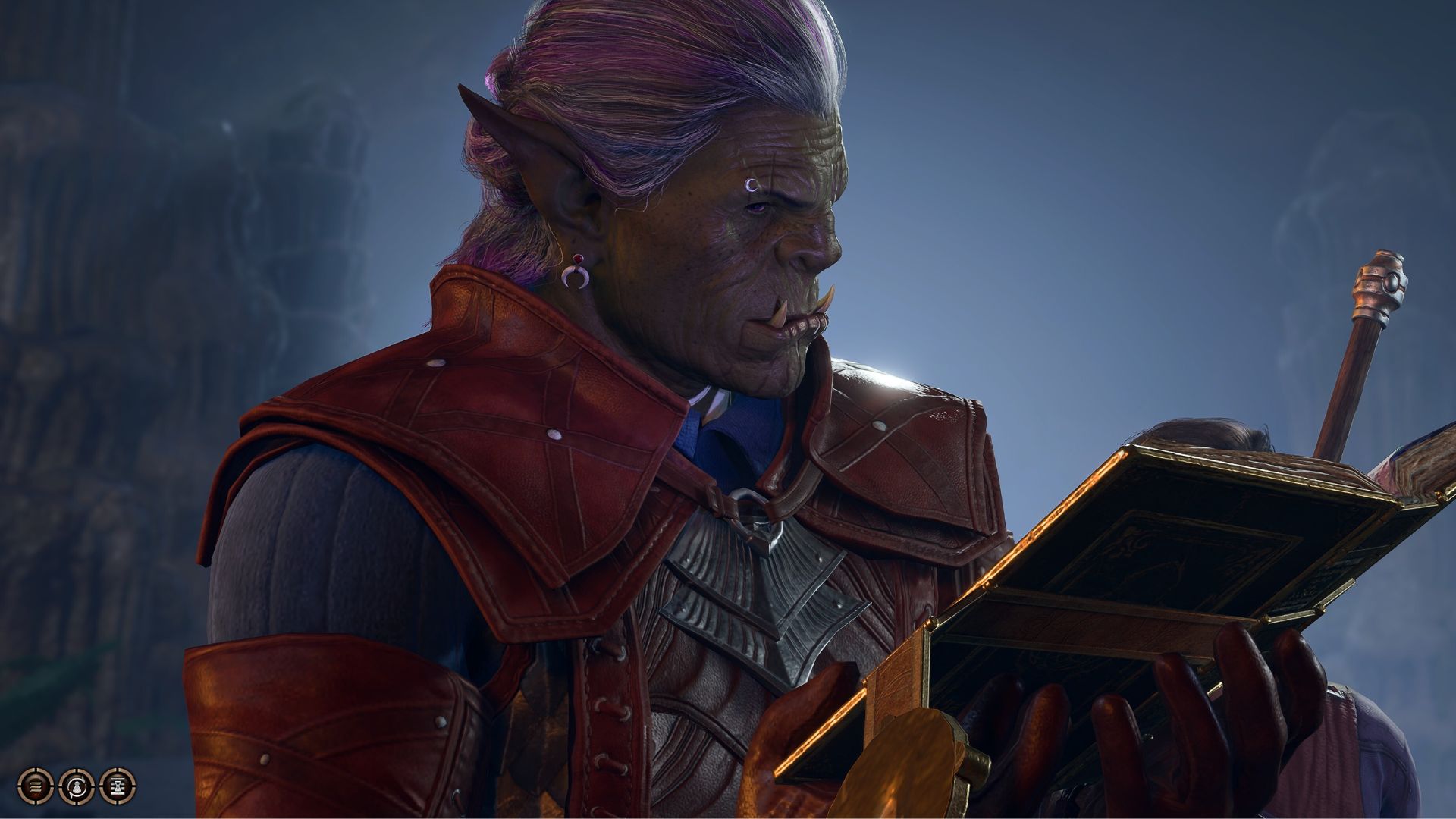
Baldur’s Gate 3 is, undeniably, a Larian game. The characters are rich and well-written, and this means that the world has weight to it: an early game argument between a druidic grove and the Tiefling refugees that are hiding there from goblins feels like it actually matters because you can see the fear of the Tieflings when they talk about getting ejected, and feel the anger of the druids that have adopted a fierce isolationist stance. This can unfold in several different ways, but each feels reasonable. Better, even if I find the “the grove should remain pure for the druids” argument personally reprehensible, I can see how the situation got to this point. My character has the power to act against that in a multitude of ways.
This little stories will often be repaid. A street urchin you do a favour for will vouch for you later when you run into each other again. Someone you convince to embrace their most heroic self in one act may appear later, or you might hear of their heroic sacrifice, saving those around them at great personal cost. Much like Dungeons & Dragons itself, this is a story that feels tailored to your actions within it. Or at least, that's the case for my current playthrough, though I've no doubt the moving parts will become more apparent on later playthroughs.
Sign up for breaking news, reviews, opinion, top tech deals, and more.
It's not just the story. The game itself is also an incredibly accurate rendition of the Dungeons & Dragons system, so Larian’s role is actually as the dungeon master (DM) while you get to grips with the systems. People unfamiliar with D&D’s weird quirks and foibles may have a rough time. Early on, hitting even low-level enemies is tricky due to how the game’s chance to hit interacts with the way defence is handled with armour class.
Similarly, because the tabletop game tries to deliver on the dungeon crawling experience in the smoothest way possible, you won’t actually get to do extraordinary things with your character until level three, which is when your character will choose their specialisation and start to feel like a distinct character. For fighters, you might get to choose the champion subclass, which makes you fantastic at battering people, or the eldritch knight, which gets to add spells to their big fighty repertoire. For Wizards, you get to choose the subclass of magic you want to be really good at. Not every class was created equally in terms of what they get when they level, but each level feels instantly more interesting than most other games. Considering the max level is 12, each level achieved will feel genuinely quite momentous. Bear in mind that in D&D parlance, by the time you get to levels 13-14, you’re just about ready to punch a god in the face. When you get to 12, you should be looking for the nearest dungeon or dragon to solo as a show of your power.
Lute goblin
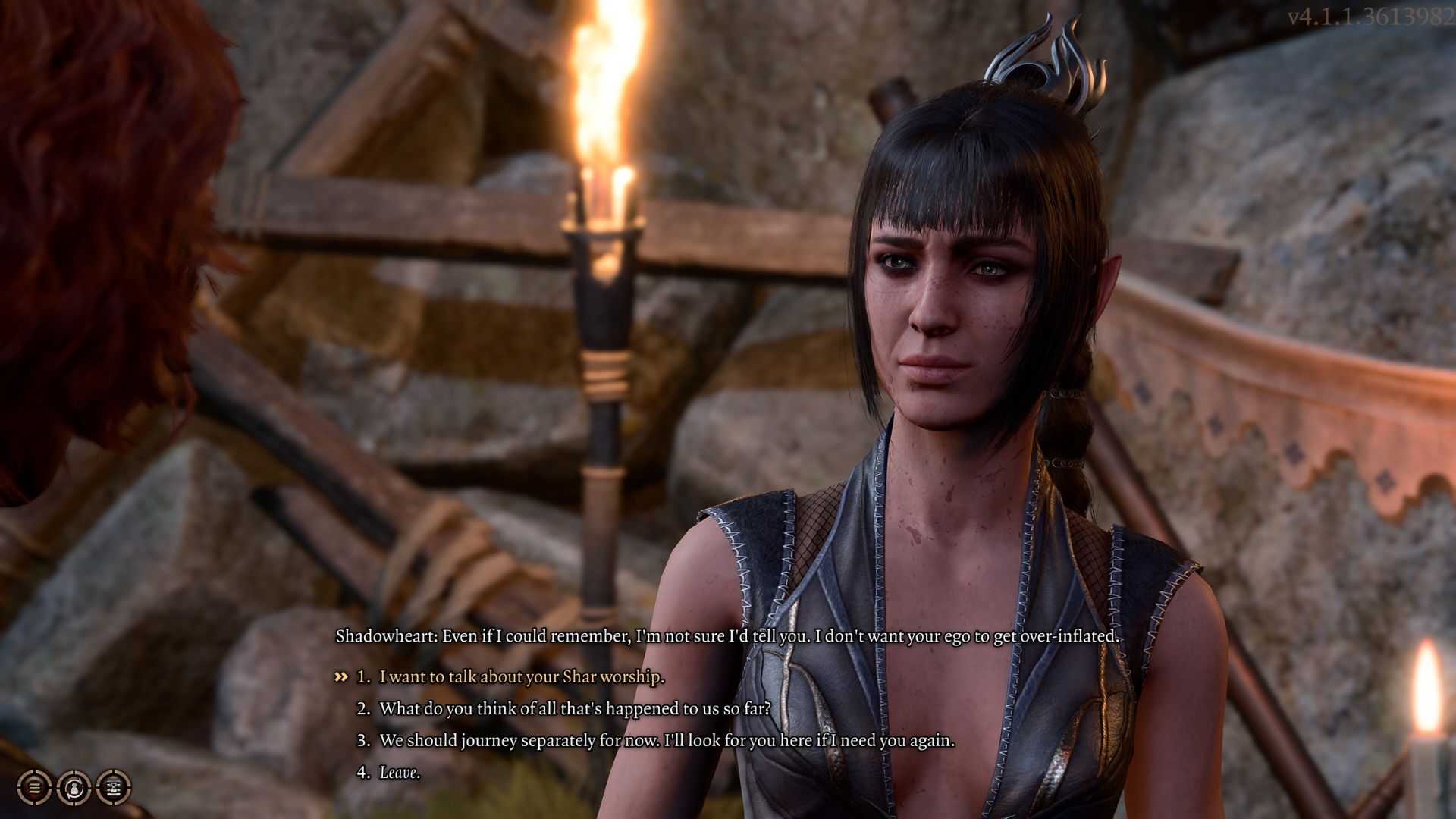
Then there’s also Baldur’s Gate 3’s spell slot system, which is actually D&D’s spell slot system. Each day, you’ll get a small selection of spell slots you can fire off before you need to take a long rest to replenish them. I’ve been playing Dungeons & Dragons for years, and the system has always annoyed me a little bit, because it turns the cool things your character can do into a finite resource and encourages you to horde them, like how you don’t use your most potent spells just in case you need them later. Suddenly, that’s the case in Baldur’s Gate 3. I’m often glancing at my toolbar and imagining my more powerful spells locked away behind imaginary glass, to be broken in case of emergency.
Still, it is a faithful adaptation, so these annoyances are annoyances that tabletop fans have also had for years. If you’ve bought into D&D’s particular brand of ridiculousness, then hey, you’ll find this is the exact game that you love, but in video game form.
Many magic-damaging classes have cantrips that increase their efficacy as your character's level. These cantrips can be cast at any time without limit, and similar “tadpole powers” given by the introduction of Mindflayer parasites you can find from powerful enemies will allow you to trade your humanity in exchange for psionic abilities or the chance to get advantage in your rolls against specific people.
Spell slots often feel anti-fun, really. For a cleric, this takes on even more significance. Why would I dare to use a damage-dealing spell when I can use those spell slots to keep my party alive during some difficult combat encounters? As a result, my cleric often feels like they’re just scrapping with their mace and shield, waiting for the moment I need them to cast a spell to keep me alive or, at later levels, bust out a revive spell to bring a dead character back from the void.
If this feels like a lot, prepare to start overthinking. Baldur’s Gate 3, more than anything else, is a game that rewards diligence. Talking to everyone and exploring everywhere will turn up various options. Playing as a bard in co-op I was able to teach Alfira, a lute-playing druid, how to sing a song that helps her process the grief she’s feeling after the death of a friend. As my ranger, I didn’t have that level of musical talent, so instead talked through the feelings with her, and she worked it out for herself. If I was more heartless, I could have instead opted to smash the lute.
This works with the combat too. Fighting an illusionist who could create magic illusions of themselves and also turn invisible was at first tricky until I realised I could find the hidden version by throwing bottles of water around until I found the invisible enemy. Then even after they had generated their magic clones, I could identify the right one by seeing who was still dripping wet.
The dungeons that make up a lot of Baldur's Gate 3 aren't just fighting either. For many puzzles you can even talk or puzzle your way out. You can charge headlong into a trap with your meaty melee character, or you can solve it with a rogue by disarming it. Failing that, you might even be able to resolve the trap using brainpower, moving barrels to block grates that spew poison gas or building a small pile of crates to catch a lethal projectile before it can hit you.
Being able to do all of this makes Baldur's Gate 3 feel more like a tabletop game and it is to the game's credit. As someone with a level of sentience barely higher than Scratch’s, Baldur’s Gate 3 manages to make me feel like both an idiot and a genius, but it’s never anything less than compelling.
Dungeon masters
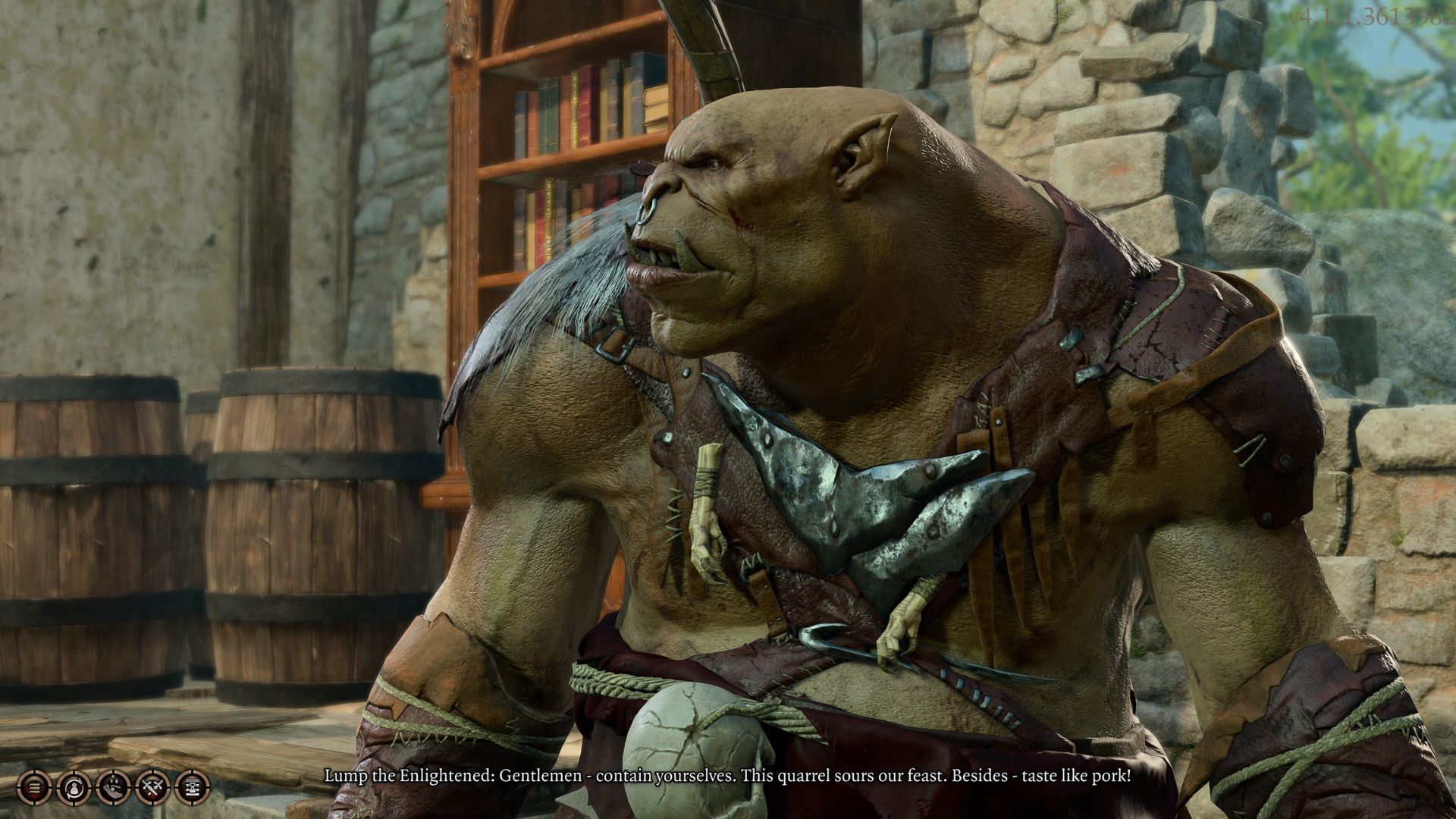
Let’s address the elephant in the room to finish off the review. There’s a lot here I haven’t discussed, and I won’t pretend to have finished the game. Code came in on Sunday the 31st of July, and here we are publishing the review on Thursday, August 3. But you can exchange your hard-earned cash for the game right now, and so it’s important to put a score on it so you know if it’s worth it.
In this time, I’ve managed to put 50 hours into it, and while I haven’t seen the end of the story, I’m happy enough with what I’ve played to score it and recommend it thoroughly.
If it turns out that Baldur’s Gate 3’s final twist is that it ends as a kart racer, with you driving through the streets of the titular city itself like a modern-day Carmaggedon, then I’m sorry I’ve steered you wrong. Otherwise, for most players, this is one of the best RPGs ever made, and I stand by the score it’s received. I’ll be jumping back in tonight, and tomorrow, and probably repeatedly for the next few weeks. It’s that good, and I wish you luck in your adventures.
Accessibility features
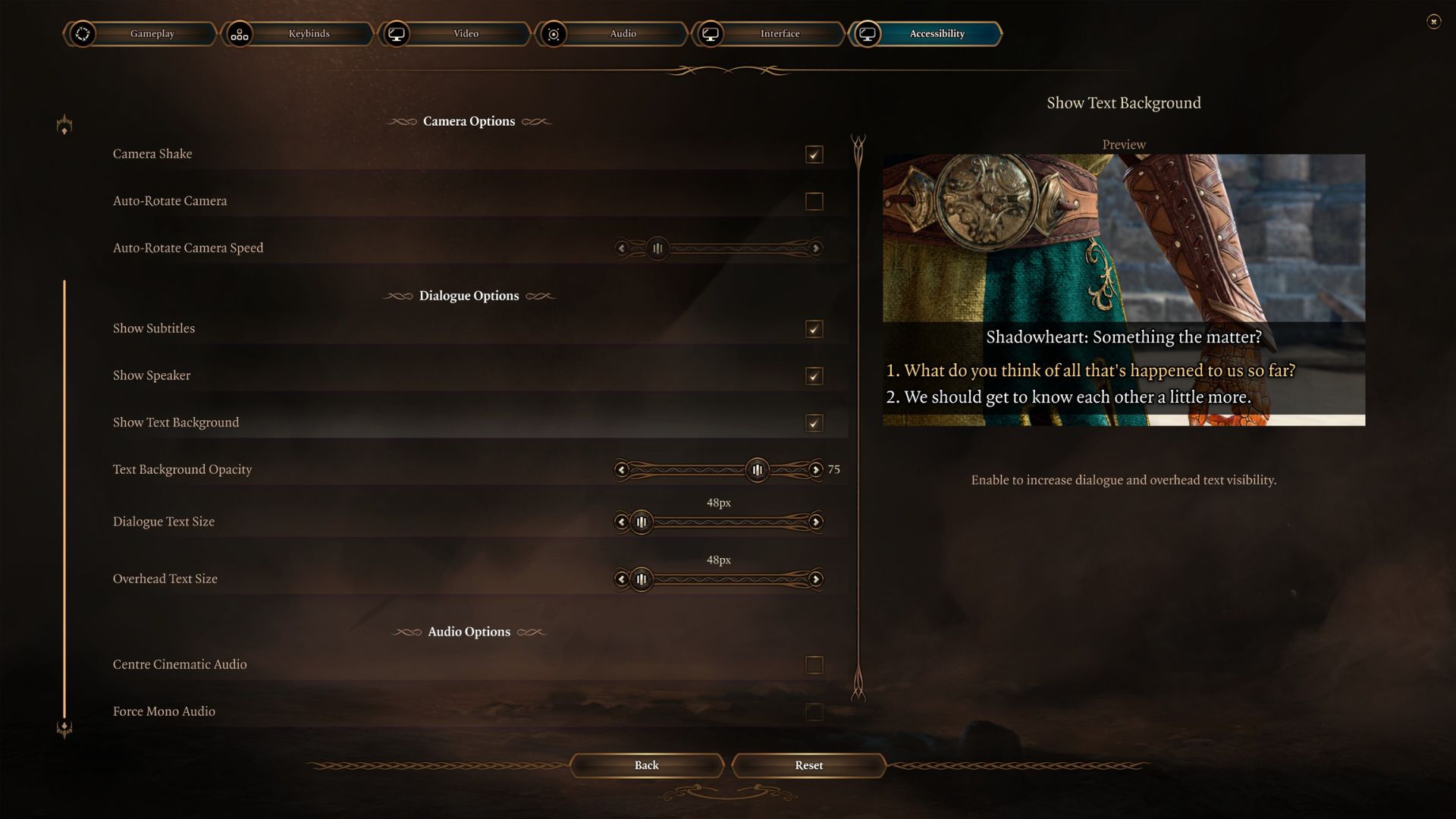
You can customise your input mode, length of button presses, subtitles, and all sorts of things here. Whether you want to add backgrounds to subtitles, tweak the size of your subtitles, or even just force mono audio if that’s more helpful. There’s more here than most games to tweak your options, including a toggle for showing genitals and nudity.
How we reviewed
I played one character for 50 hours on PC. This wasn’t enough to get through the game, and I'm still in the early to mid stages of Act 2, but it’s more than enough to get a sense of the sprawling scale and depth of the game here.
You Might Also Like...
- Check out the best multiplayer games on PC
- The best Game Pass games to play in 2024
- Our Dragon's Dogma 2 review

Jake Tucker is the editor in chief of TechRadar Gaming and has worked at sites like NME, MCV, Trusted Reviews and many more. He collects vinyl, likes first-person shooters and turn-based tactics titles, but hates writing bios. Jake currently lives in London, and is bouncing around the city trying to eat at all of the nice restaurants.
- Jake GreenEvergreen Editor, TechRadar Gaming
